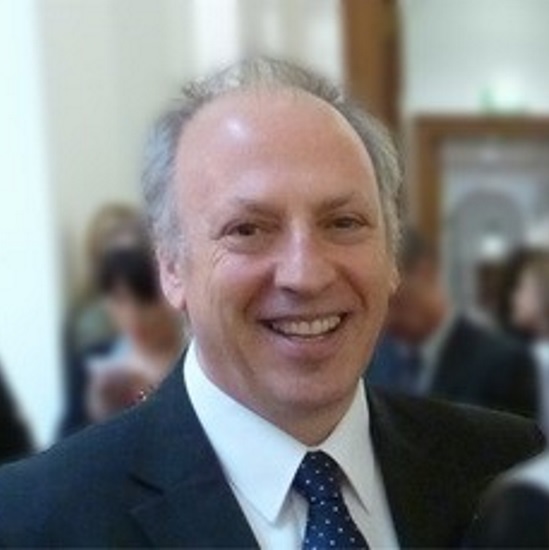Links to external sources may no longer work as intended. The content may not represent the latest thinking in this area or the Society’s current position on the topic.
Mathematics for the modern economy

Industrial mathematics is of significant importance to the UK economy, cutting across many high-value industry sectors, including engineering, finance, defence, life sciences and even sports and entertainment.
To maintain their position and economic benefit, such industries must strive to be advanced, inventive and creative. The same argument also applies to more conventional sectors, such as agriculture, utilities and manufacturing. In all cases, there is a clear need for problems to be defined in a sensible mathematical way and solved to yield the best economic and social outcomes using appropriate, often innovative, mathematical techniques.
Industrial mathematics is currently responding to the uncertain data-rich world which industry now confronts. It is doing this by developing and applying tools that can take account of the uncertainty that can arise in many different situations and can lead to many statistical patterns. All the while, industry-driven problem-solving is expanding remorselessly, leading to ever increasing challenges for the whole mathematics community.
Attending this event
This conference will bridge the gap between the UK’s expertise in industrial mathematics and those who apply it, whether in industry, government or other academic disciplines. It is aimed at mathematicians, scientists, engineers and professionals working in industry, academia or government. The conference concludes with an exhibition and drinks reception sponsored by The Smith Institute for Industrial Mathematics and System Engineering.
For more information, please contact the Industry Team.
Organisers
Schedule
Chair
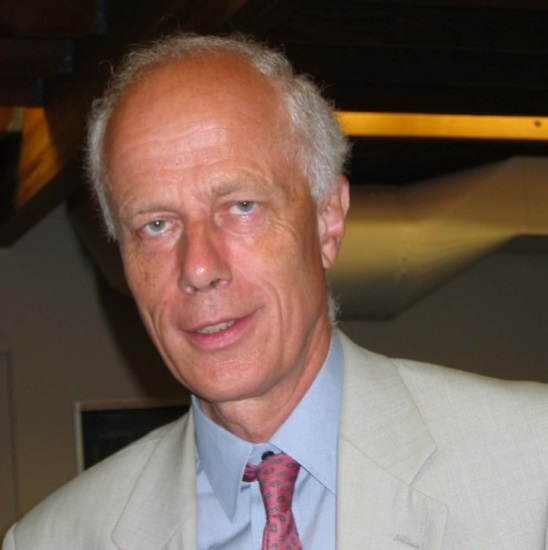
Professor John Ockendon FRS, Emeritus Fellow of St Catherine's College, University of Oxford

Professor John Ockendon FRS, Emeritus Fellow of St Catherine's College, University of Oxford
John Ockendon is a leading applied mathematician who has been one of the pioneers in developing interaction between industry and university departments of mathematics. He has been behind such work in Oxford for over thirty years, and served as Research Director of the Oxford Centre for Industrial and Applied Mathematics. He has not only inspired the work of others, but also contributed personally and significantly to such diverse areas as locomotive traction, solidification, purification, injection moulding, glass fibre manufacture, dislocation theory and gravimetry. Free boundary problems have been a particular interest, and he has been central in the European Science Foundation’s work in this area.
| 09:30 - 09:35 |
Welcome remarks
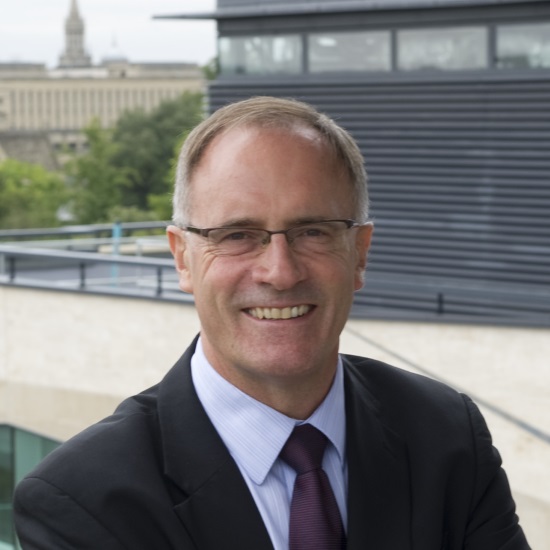
Professor Alexander Halliday FRS, Vice President (Physical Secretary), the Royal Society

Professor Alexander Halliday FRS, Vice President (Physical Secretary), the Royal SocietyAlex Halliday, Physical Secretary and Vice-President of the Royal Society has been Professor of Geochemistry at Oxford University since October 2004. Before going to Oxford, he spent twelve years as a professor at the University of Michigan and then six years in Switzerland, where he was Head of the Department of Earth Sciences at the ETH in Zürich. His research involves the use of isotopic methods to study Earth and planetary processes. An enthusiast for technological innovation, most of Halliday's recent research is in developing and using new mass spectrometry techniques to shed light on the origin and early development of the solar system and recent Earth processes, such as continental erosion and climate. However, he has also been engaged in other studies, such as the mechanisms of volcanic eruptions, and the formation of mineral and hydrocarbon deposits. Halliday's scientific accomplishments have been recognised with awards including the Murchison Medal of the Geological Society, the Bowen Award and Hess Medal of the American Geophysical Union, the Urey Medal of the European Association of Geochemistry and the Oxburgh Medal of Institute of Measurement and Control. He was elected a Fellow of the Royal Society in 2000 and a Foreign Associate of the US National Academy of Sciences in 2015. |
|---|---|
| 09:35 - 10:15 |
Network modelling, social applications and consumers
Many problems in industry - and in the social, natural, information and medical sciences - involve discrete data and benefit from approaches from subjects such as network science, information theory, optimization, probability, and statistics. Because the study of networks is concerned explicitly with connectivity between different entities, it has become very prominent in industrial settings, and this importance has been accentuated further amidst the modern data deluge. In this talk, Mason Porter will discuss the role of network analysis in industrial and applied mathematics focusing on a physical-applied-mathematics approach to the study of networks. He will give some examples of network science in industry including his collaboration with dunnhumby, a customer data science company. Chris Brooks from dunnhumby will also give a short description of applied mathematics and network science at dunnhumby, and how academic partnerships are an important part of keeping dunnhumby’s research at the cutting edge. 
Professor Mason Porter, UCLA

Professor Mason Porter, UCLAMason Porter was born in Los Angeles, USA. He received a Bachelors degree in applied mathematics from Caltech in 1998 and a Ph.D. from the Center for Applied Mathematics at Cornell University in 2002. After holding postdoctoral positions at Georgia Tech, MSRI, and Caltech, Porter joined the faculty of the Mathematical Institute (and Somerville College) at the University of Oxford in 2007. He was named Professor of Nonlinear and Complex Systems in 2014. In 2016, he moved to the faculty of the Department of Mathematics at UCLA. Porter's research is in networks, complex systems, nonlinear systems, and their applications. His awards include the Erdös–Rényi prize in network science (2014), a Whitehead Prize (London Mathematical Society, 2015), and the Young Scientist Award for Socio- and Econophysics (German Physical Society, 2016). 
Chris Brooks, Head of Science, dunnhumby

Chris Brooks, Head of Science, dunnhumbyChris Brooks is a Head of Science at dunnhumby, with a focus on technology to accelerate data science techniques. dunnhumby’s global science teams work on price and promotions, personal recommendation, simulation, prediction and analytical computer sciences, in a retail context. Chris joined dunnhumby in 2002 and has had a number of roles including data science, computer science, insight, architecture and data management. Prior to joining dunnhumby, Chris worked at British Airways as an Operational Research analyst. Chris has a Maths degree from the University of Cambridge and a Masters in Operational Research from the University of Birmingham. |
| 10:15 - 10:50 |
Industry-driven mathematical problem-solving in Korea
While the mathematical culture in Korea heavily leans towards pure side, new initiatives jointly launched by the math community and the government is rapidly introducing industrial mathematics for addressing problems arising in industry. This talk aims to introduce the initiatives and outline several prominent industrial problems that were successfully solved during the process. 
Professor Hyungju Park, President, National Institute for Mathematical Sciences, Korea

Professor Hyungju Park, President, National Institute for Mathematical Sciences, KoreaHyungju Park was born in Buyeo, Korea, and received his BS in physics at Seoul National University in 1986, and then received his Ph.D. at the University of California, in Berkeley in 1995. He studied algebraic geometry at the graduate school, gradually moving to computational aspect of algebraic geometry and applications to signal processing. He was a professor of computational sciences at Korea Institute for Advanced Study (KIAS), and then a professor of mathematics at Pohang University of Science and Technology (POSTECH). Hyungju Park is currently the president of the National Institute for Mathematical Sciences in Korea and a distinguished professor of mathematics at Ajou University. He served as the chairman of Organizing Committee of International Congress of Mathematics (ICM) 2014 in Seoul, and is currently a member of the Executive Committee of the International Mathematical Union. |
| 11:20 - 12:00 |
Mathematics delivering the advantage: from manufacturing to finance
Dr Vicki Saward: Much has been written about the benefits that mathematics can bring to the UK economy and the manufacturing sector in particular, but less on the value of mathematicians and a mathematical training. This talk considers the value of mathematicians to the UK’s industrial base and the importance to the UK economy of encouraging young people in the UK to choose to study mathematics at school as a gateway to a wide range of careers. The points are illustrated using examples from the author’s 20 years’ experience in the security and intelligence and manufacturing sectors. Dr Helen Haworth: The global financial crises of the last ten years have resulted in widespread focus on the global financial markets and their relationship with the global economic outlook. In turn, many financial market participants have received considerable scrutiny, with a particular focus on the role that quantitative models may have played in adding to market volatility. This talk will look at the evolving role of mathematics in the financial industry against this backdrop. We discuss some of the quantitative approaches used by different types of financial market participants, illustrating both the positive and negative influence mathematics can have via a number of case studies. In doing so, we further draw out the similarities and differences with the application of mathematics in manufacturing. 
Dr Helen Haworth

Dr Helen HaworthHelen has 15 years of experience in the finance industry, spanning asset management and investment banking. She has broad experience across multiple fixed income asset classes, with particular expertise in credit and interest rates, and has worked in four countries on four continents. Most recently, Helen was a Managing Director in the Global Markets Division of Credit Suisse in London, running the Global Interest Rate Strategy team. In this role, she and her team were responsible for publishing views on the direction of global interest rates for the firm’s clients. Helen has a DPhil in financial mathematics from the University of Oxford modelling credit contagion within baskets of financial derivatives, an MMath from the University of Oxford and is a CFA Charterholder. She is currently taking some time out from the corporate world to look after her two young children and is helping build a small business in the sports and leisure industry. 
Dr Vicki Saward

Dr Vicki SawardVicki is responsible for driving the operational performance of BAE System's Submarine business in Barrow-in-Furness as the shipyard embarks on the delivery of the next generation nuclear deterrent. She is responsible for the design and build of two classes of submarine and a workforce of more than 5000 people spanning engineering, project management, supply chain and operations. Prior to joining Submarines, Vicki worked for BAE Systems Applied Intelligence (formerly Detica) where she specialised in enabling organisations to exploit information and intelligence more effectively. Vicki spent most of her early career supporting the UK’s Law Enforcement community implement technology-enabled change with a specific focus on organised crime, tax and benefits fraud and counter-terrorism. Vicki has held various Director level roles at BAE Systems spanning P&L management, client engagement and strategic new ventures. Vicki gained a D. Phil. from the Oxford Centre for Industrial and Applied Maths (OCIAM) with a Thesis on the applications of diffraction theory to stealth technology. Vicki is married with two children and in her spare time enjoys gardening and spending time outdoors with her family. |
|---|
Chair
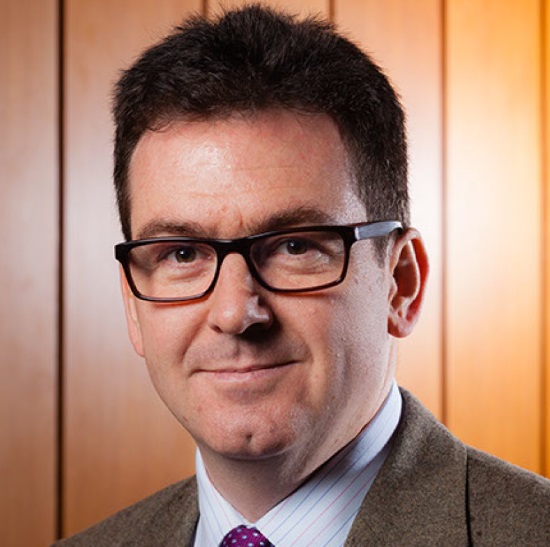
Dr Robert Leese, Chief Technology Officer, The Smith Institute

Dr Robert Leese, Chief Technology Officer, The Smith Institute
Dr Robert Leese was appointed Chief Technology Officer for the Smith Institute in May 2017. Robert was previously Director and then Chief Executive of the Smith Institute since 1999, where he was responsible for leading the Institute’s growth and development. Over his period in this position the Institute established itself as one of the leading independent companies enabling business and government to accelerate growth and increase performance through harnessing the use of mathematical thinking. In recent years, Robert has led the Smith Institute's work in system design and assurance for high-value spectrum auctions around the world, including most recently in Canada and the United States. The Institute has more than a decade of experience in this area, dating back to the pioneering deployment of combinatorial auction designs by Ofcom in the UK. Prior to that, Robert worked closely with the Radiocommunications Agency in promoting the use of graph theory to address problems in radio channel assignment, and has published some of the most heavily cited papers in the field. He has an MMath from Cambridge, a PhD in Mathematical Physics from Durham and was a Research Fellow for 3 years at St John's College, Cambridge. Robert has been a Fellow at St Catherine's College, Oxford since 1993, where he maintains an active role in teaching and is a member of the Governing Body. From 2000 to 2014, Robert was Director of the UK's Faraday Partnership and then Knowledge Transfer Network for Industrial Mathematics. He is a Fellow of the Institute of Mathematics and its Applications and a peer reviewer for the Engineering and Physical Sciences Research Council.
|
High Performance Computing for Nuclear Security Applications
Mathematics has always been at the heart of scientific endeavour but the arrival of the computation era has radically changed the application of mathematics to modern problems. This talk will discuss the advent and development of high performance computing for simulation, and the consequent ability to make empirical methods, which remain essential, more targeted and cost effective. Future changes in computer architectures will provide new opportunities but also challenges to effective exploitation of the potential of the hardware. Reference and examples will be drawn from the nuclear security enterprise. 
Professor Andrew Randewich, AWE plc, UK

Professor Andrew Randewich, AWE plc, UKAfter completing a PhD in plasma physics, Andrew joined AWE in 1997 in the High Altitude Nuclear Effects Team where he developed a novel capability to model Nuclear Induced Van Allen Belts, worked on Electromagnetic Pulse phenomenology, and won the Discovery Award for Early Career Scientific Innovation. Andrew later worked on thermonuclear burn modelling in support of Inertial Confinement Fusion and as a Team Leader in the Computational Physics Group. Since then, Andrew managed the Physics Certification programme and later led the High Performance Computing Group where he was involved in the procurement and installation of some of the largest computers in the UK. After acting as Head of Design Physics, Andrew was appointed Head of Plasma Physics in 2011. The Department’s main role is using high power lasers to underwrite high energy density physics simulations. Andrew was Asset Manager for the ORION laser, one of the largest science capital investments in the UK and managed several other science facilities. Also in 2011, Andrew became Head of Profession for Physics and in 2013 moved to be AWE Chief Scientist in which role he assured AWE Science and Capability and led the company’s Strategic External Outreach. He is now Head of Physics comprising 550 staff. Andrew was appointed as a visiting Professor at Imperial College, London in 2012, and is a Chartered Physicist, a Chartered Engineer and a Fellow of the Institute of Physics. Andrew was part of the 2015 Review of the US NNSA Inertial Confinement Fusion and High Energy Density Science Review in 2015 and sits on the NIF Management Advisory Committee and NNSA’s 2020 ICF, Ignition and High Yield Red Team Review Panel. |
|

Dr Mark Taylor, Global Strategy & Research Director, Dyson

Dr Mark Taylor, Global Strategy & Research Director, Dyson |
|
|
Mathematics for the Modern Pharmaceutical Industry
Mathematics underpins all research, development and manufacturing in the modern pharmaceutical industry. The volume and complexity of the data generated within R&D is increasing and we need to get smarter at analysing these data sets in order to decrease attrition and develop more innovative medicines. The range of mathematical techniques being used routinely by the industry is also on the rise. Traditional statistical techniques are still used in both pre-clinical and clinical studies but they are now being supplemented by sophisticated techniques such as topological data analysis (TDA). For example, TDA has been used to identify gene signatures that are associated with improved survival outcomes in patients with breast cancer. Similarly, algorithms have been developed to differentiate healthy and diseased tissue, a task previously assigned to a highly trained histologist. This talk will cite several examples where mathematics is used to advance the discovery and development of new medicines. 
Dr Malcolm Skingle CBE, GSK

Dr Malcolm Skingle CBE, GSKMalcolm has BSc in Pharmacology/Biochemistry and a PhD in Neuropharmacology. He has gained a wide breadth of experience in the management of research activities and has more than 60 publications including articles on the interface between industry and academia. For more than two decades he has managed Academic Liaison at GSK managing staff in the UK and US. His role involves close liaison with several groups outside the company e.g. Government departments, research and funding councils, small biotechnology companies and other science-driven organisations. He sits on many external bodies and several UK university department advisory groups. He also chairs several groups including the Diamond (Synchotron) Industrial Advisory Board, the Science Industry Partnership addressing skill needs for scientists in England and the ABPI group working on academic liaison. Malcolm was awarded a CBE in the 2009 Queen’s Birthday Honours List in recognition of his contribution to the pharmaceutical industry as well as an Honorary Professorship from the College of Medical and Dental Sciences at the University of Birmingham and honorary degrees from the Universities of Dundee and Hertfordshire. |
|

Mayesta Ewer, Head of Analytics, NATS

Mayesta Ewer, Head of Analytics, NATS |
| 14:00 - 14:35 |
The use of modelling in golf
At its core, like many other sports, golf is a game of integers. The minimisation of the strokes played is generally what determines the winner, whether each of these are associated with the shortest of putts or the longest of drives. Understanding the mechanics of golf necessitates the development of models and this is coupled more often than not to the use of statistics. In essence the individual aspects of the sport can be modelled adequately via fairly simplistic models, but the presence of a human at one end of the kinetic chain has a significant impact on the variability of the entire process. In this presentation we will review the way that mathematics has been used to develop the understanding of the physical processes involved in the sport, including the Rules. We will also discuss some of the challenges going forward. 
Dr Steve Otto, Director – Equipment Standards, The R&A

Dr Steve Otto, Director – Equipment Standards, The R&ADr Otto is a mathematician, formerly of The University of Birmingham, who has headed the R&A's Research and Testing work since 2004. He has written two books and over fifty scientific articles, together with supervising 20 PhD projects over half of which have concerned golf. His current role includes the management of numerous research projects, developing the overall understanding of the physics of golf to ensure that the Rules of Golf remain pertinent to the way the game is played today. This is coupled with reviewing equipment to ensure that it meets the current Rules of Golf. As part of understanding the issues facing the game today, Dr Otto and his team engages in the collection of data from attitudinal information from golfers to laboratory measurements to measurements of golfers of all levels. |
|---|---|
| 14:35 - 15:10 |
Mathematics making a difference

Professor Mark Girolami, Imperial College

Professor Mark Girolami, Imperial CollegeMark Girolami FRSE is Chair of Statistics in the Department of Mathematics at Imperial College London and Associated Professor in the Department of Computing at Imperial College. He spent the first ten years of his career as an engineer with IBM. He is an EPSRC Established Career Research Fellow - Mathematics - (2012-2018), and previously an EPSRC Advanced Research Fellow - ICT - (2007-2012). In 2011 he was elected to the Fellowship of the Royal Society of Edinburgh and awarded a Royal Society Wolfson Research Merit Award. Previous research has generated patents and technologies for fraud detection in both automated banking and telecoms. Based on this research, currency validation products are now being shipped with latest generation Cash Machines from National Cash Registers. In the last quarter of 2015, he worked on developing probabilistic methods for City specific forecasting of product demand for Amazon Global Forecasting Division in Seattle. |
| 15:10 - 15:50 |
Innovative industrial maths in large companies and in Europe
Dr Poul Hjorth: A brief review of how Industrial Mathematics, inspired by the Oxford Study Group activity, organised itself in Europe, gave rise to the European Consortium For Mathematics in Industry (ECMI), the series of European Study Groups with Industry (ESGI), and to new modes of productive contacts between industry and applied mathematicians in academia. Dr Chris Farmer: A mathematical model can be analysed to construct policies for action that are close to optimal for the model. If the model is accurate, such policies will be close to optimal when implemented in the real world. The different aspects of an ideal workflow are reviewed: modelling, forecasting, evaluating forecasts, data assimilation, and constructing control policies for decision-making. The example of the oil industry is used to motivate the discussion, and other examples, such as weather forecasting and precision agriculture, are used to argue that the same mathematical ideas apply in different contexts. 
Dr Poul Hjorth, Associate Professor of Applied Mathematics, Technical University of Denmark

Dr Poul Hjorth, Associate Professor of Applied Mathematics, Technical University of DenmarkM.Sc. (Mathematics), University of Copenhagen 1982; Ph.D.(Mathematical Physics) University of California 1988. Research fellow at Institute for Nonlinear Science, University of California San Diego 1988-1989. Associate professor of Mathematics at Department of Applied Mathematics and Computer Science, Technical University of Denmark (DTU) since 1994. Visiting Professor at The Maresk McKinney Institut for Production Technology, 2004. DTU Teaching Award, 2010. Editor of the Danish Mathematical Society Newsletter MATilde. Lecturer at the Danish Open University in Copenhagen. Organiser and co-organiser of Danish Study Groups with Industry. Executive Director for the European Consortium for Mathematics in Industry (ECMI). 
Dr Chris Farmer, Research Fellow, Oxford Centre for Industrial and Applied Mathematics

Dr Chris Farmer, Research Fellow, Oxford Centre for Industrial and Applied MathematicsWith a first degree in pure mathematics and theoretical physics and a theoretical physics PhD, Chris Farmer joined the UKAEA in 1976 working on nuclear safety and on oil recovery. In 1991 he became a software developer with Schlumberger, developing simulation and geological modelling software for the oil industry. From 2002-2006 he was a Royal Society Industry Fellow. For two years he was a leader of the Schlumberger mathematics community of several hundred mathematicians. Since 2009 he has been a research fellow at the Oxford Mathematical Institute working in the area of inverse problems, uncertainty and optimal decision-making. |
| 16:20 - 17:00 |
Computing reality in entertainment and product design
Received wisdom puts the “mean-time to commercial impact” of mathematical insight on the order of decades. Today, engineering and financial services companies, amongst others, exploit mathematics on timescales measured in years or months. With the new “computing continuum” - architectures that scale smoothly from highly parallel micro-computing (many-core) to massively parallel macro-computing (many-machine or cloud) - the prospect of solving higher order differential equations in milliseconds, reduces the mean-time to commercial impact of mathematics to real time; taking the people and tools that modify and solve such equations to the heart of everyday design processes. We illustrate these developments with examples from the entertainment and consumer product industries, show the type of innovations in data structures and architecture required to support such high-performance equation solving, and point to a future in which the continuous real-time solution of families of differential equation sits at the heart of every successful business enterprise. Needless to say, in such a world mathematical mastery, not just literacy, becomes the key to commercial success. 
Dr Lincoln Wallen, CEO, DWA NOVA LLC

Dr Lincoln Wallen, CEO, DWA NOVA LLCLincoln Wallen serves as Chief Technology Officer for DreamWorks Animation and is responsible for providing strategic technology vision and leadership for the company. Wallen is also Chief Executive Officer of DreamWorks Animation’s newly formed technology company, NOVA, bringing DreamWorks cloud-based visual imaging platform to companies designing and retailing consumer products. Lincoln joined DreamWorks Animation in 2008 as Head of Research and Development, where he oversaw the strategic vision, creation and deployment of the studio’s CG production platform and software tools. Wallen is a recipient of InfoWorld’s 2012 “Technology Leadership Award,” the prestigious annual award that honors senior executives who have demonstrated creative, effective leadership in inventing, managing, or deploying technology within their organizations or in the IT community. Under his leadership, DreamWorks Animation was named to the 50 Most Innovative Companies list in MIT’s Technology Review. Prior to joining DreamWorks Animation, Wallen was Chief Technology Officer for Online and Mobile Services at Electronic Arts where he led the company’s approach to publishing and videogame development for cell phones. Prior to EA, Lincoln served as Vice President at Criterion Software, and Chief Technology Officer for the physics startup MathEngine. Before joining the entertainment industry, Wallen enjoyed a distinguished career as a Professor at Oxford University, was the first Director for the multidisciplinary Smith Institute for Industrial Mathematics and Systems Engineering. He holds a B.S. in Mathematics and Physics from the University of Durham, United Kingdom and a PhD in Artificial Intelligence as well as an honorary Doctorate from the University of Edinburgh, United Kingdom. |
|---|
Chair
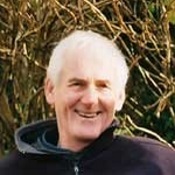
Professor Julian Hunt FRS, University College London

Professor Julian Hunt FRS, University College London
Professor Hunt is Chairman and Director of Cambridge Environmental Research Consultants Ltd, He has been a Fellow of the Royal Society since 1989, Visiting Fellow of the Malaysian Commonwealth Studies Centre in the University of Cambridge, Fellow of Trinity College Cambridge, Honorary Professor in the Department of Applied Mathematics and Theoretical Physics, University of Cambridge, a J M Burgers Visiting Professor at Delft University of Technology and Visiting Professor at Arizona State University, Hong Kong University. He is also Emeritus Professor of Climate Modelling in the Department of Earth Sciences.
Professor Hunt was President of the National Society for Clean Air (now Environmental Protection UK) from 2005 to 2006. He was Director-General and Chief Executive of the Meteorological Office from 1992 to 1997. He was President of the Institute of Mathematics and its Applications in 1993. He was also the founding Secretary-General of the European Research Community for Flow, Turbulence and Combustion in 1988 and Chairman of its Scientific Programme Committee from 1990 to 1994. Professor Hunt was created a Baron in the House of Lords in 2000. He has sat on select committees in the House of Lords dealing with international environmental treaties, the Arctic and other scientific topics. He holds a PhD in Aspects of Magnetohydrodynamics from the University of Cambridge which relates to his current position as Chairman of the advisory committee of Tokamak Energy, a privately funded company developing modular fusion systems.
| 17:00 - 18:00 |
Panelists (confirmed)

Dr Marianna Braza, Institut de Mécanique des Fluides de Toulouse

Dr Marianna Braza, Institut de Mécanique des Fluides de ToulouseMarianna Braza graduated from the Institut National Polytechniqe d’Athènes, in 1977, received her Ph.D. in Fluid Mechanics from the Institut National Polytechnique de Toulouse (INPT) in 1981 and her Doctorat d’Etat-ès-Sciences in 1986. She was appointed as Director of Research at the National Center for Scientific Research (CNRS), at the Institut de Mécanique des Fluides de Toulouse (IMFT) in 2001, after holding research position of Chargée de Recherche for four years at CNRS-IMFT, where she developed her research in the group Transferts en Ecoulements Laminaires et Turbulents. Her current responsibilities involve leadership of the research theme "Fluid-Structure interaction under Turbulent flows'' in the group EMT2, Ecoulements Monophasiques, transitionnels et Turbulents of IMFT, including several permanent and invited faculty members, doctoral students and postdoctoral fellows. Her research interests are in flow physics and modeling of turbulent aerodynamic flows, fluid-structure interaction and in particular Morphing of aerostructures for novel designs. She has received three scientific awards (CRAY-Research, France, 1987); (Académie des Sciences et de Belles Lettres de Toulouse, 1988); (IBM - Calcul Numérique Intensif, 1991) and was involved in the best student’s Aerodays meeting award by the European Commission, in 2011 through her students' best study. Currently, she is the coordinator of several working groups in Federative European Research Programmes of the 6th and 7th Framework (FP7) in areas related to aeronautics, fluid-structure interactions and unsteady flow physics involving shock waves and laminarity of new generation of wings. She has a leadership in the research theme of morphing in IMFT and she coordinates three national aeronautics research programs on electroactive morphing for smart wing design. She is the leader of the platform “Smart Morphing Center”, and has a strong collaboration with MIT (Department of Mechanical Engineering) in this topic. In parallel, inspired from turbulence and thermodynamics, she studies modelling for modern economy. 
Dr Ruth McKernan CBE FMedSci, Chief Executive, Innovate UK

Dr Ruth McKernan CBE FMedSci, Chief Executive, Innovate UKRuth McKernan joined Innovate UK as Chief Executive in May 2015. Ruth has 25 years of research and commercial experience in the pharmaceutical industry, including heading up research units in the UK and the US. She is a member of the Science, Industry and Translation Committee of the Royal Society, a member of Cancer Research UK and previously a Council Member for the Medical Research Council. Ruth has held previous roles as Senior Vice President, Pfizer and Head of the Merck Neuroscience Research Centre. Ruth has a BSc in Pharmacology and Biochemistry and a PhD in Molecular Neuroscience from King’s College, London and spent two years in San Diego on a Fulbright Scholarship. She has more than 120 scientific papers and 15 patents. Her hobbies include science writing; she won a Science Writer of the Year award for articles in the Independent and published her first book ‘Billy’s Halo’ in 2005. Ruth was awarded a CBE in 2013 for services to Business, Innovation and Skills. 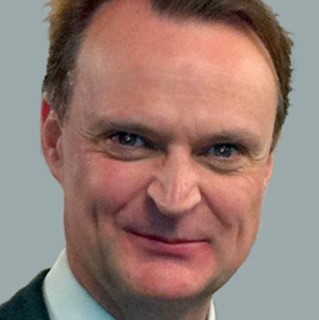
Professor Philip Bond FREng

Professor Philip Bond FREngPhilip studied physics, theoretical physics, applied mathematics, finance and pure mathematics before working as a professional trader and hedge fund manager. He then started a consultancy specialising in problem solving across a wide range of activities including F1, aerospace, government and Olympic sports. He also heads research and innovation for the GB Olympic ski and snowboard teams at GB Snowsport. Philip sits on the Prime Minister's Council for Science and Technology (CST) and chaired its subcommittee on artificial intelligence and robotics that led to subsequent new funding of over a billion pounds into those sectors. He also chaired the Era of Mathematics – An Independent Review of Knowledge Exchange in the Mathematical Sciences which recommended substantial increases in funding and new infrastructure to support the mathematical sciences and expand their range of impact. He is currently chairing subcommittee projects on UK productivity, and learning. He is a fellow in the Department of Mathematics at Oxford, holds visiting professorships in engineering mathematics and computer science at the University of Bristol, and is Professor of Creativity and Innovation at the University of Manchester. He has twice held the Guinness world record for the memorisation of the number pi. |
|---|
| 18:00 - 20:00 |
Exhibition
The drinks reception will include an exhibition featuring important representatives from the mathematical community, on hand to answer questions in a relaxed and informal setting and provide literature for delegates to take away. The exhibition and drinks reception is sponsored by The Smith Institute for Industrial Mathematics and System Engineering. The Smith Institute specialises in solving complex problems for businesses and governments by applying mathematical thinking and techniques. We build trusted relationships with our clients, offering expert insight to support informed decision-making and reduce risk. |
|---|


